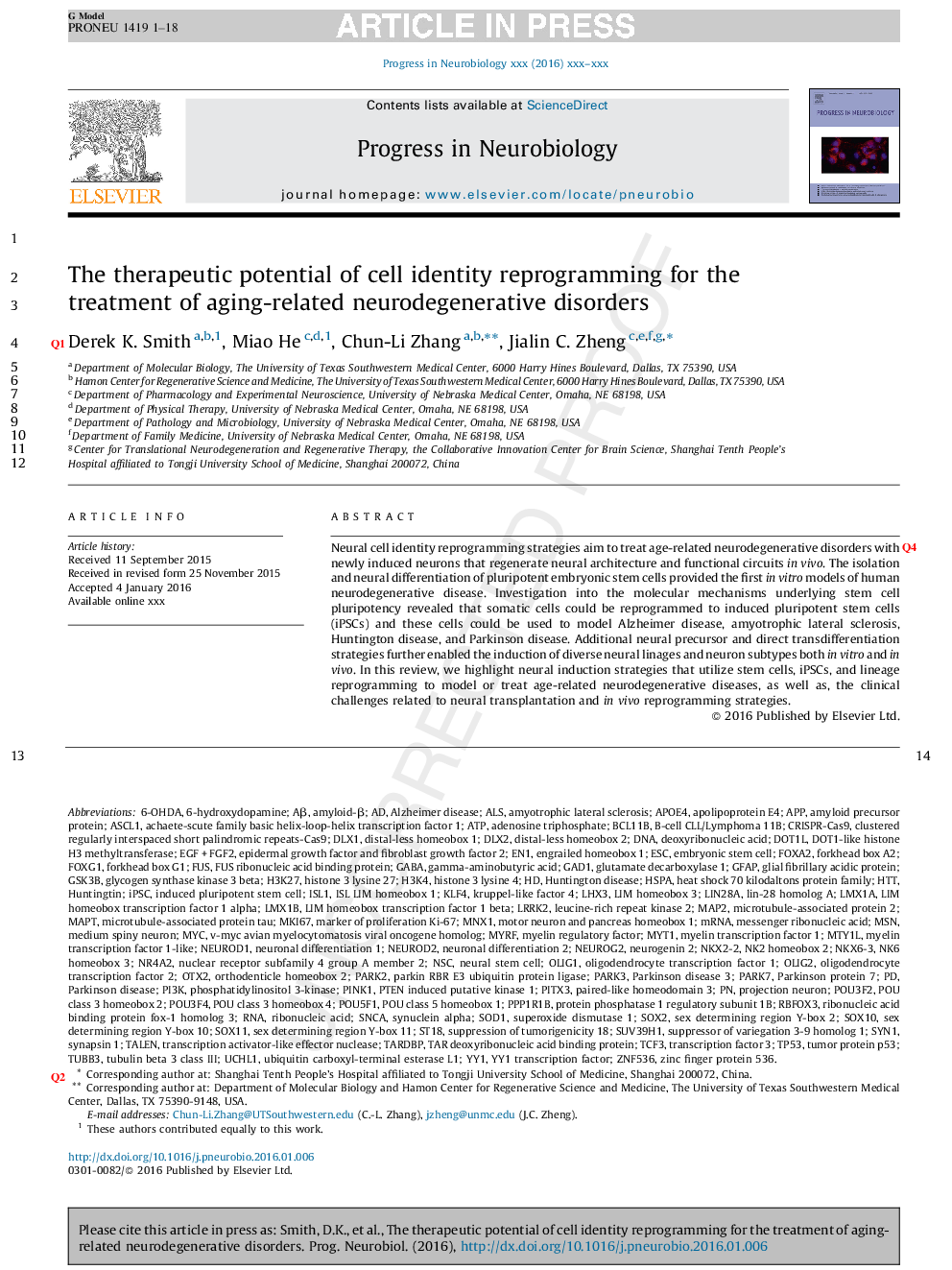| Article ID | Journal | Published Year | Pages | File Type |
|---|---|---|---|---|
| 5739073 | Progress in Neurobiology | 2017 | 18 Pages |
Abstract
Neural cell identity reprogramming strategies aim to treat age-related neurodegenerative disorders with newly induced neurons that regenerate neural architecture and functional circuits in vivo. The isolation and neural differentiation of pluripotent embryonic stem cells provided the first in vitro models of human neurodegenerative disease. Investigation into the molecular mechanisms underlying stem cell pluripotency revealed that somatic cells could be reprogrammed to induced pluripotent stem cells (iPSCs) and these cells could be used to model Alzheimer disease, amyotrophic lateral sclerosis, Huntington disease, and Parkinson disease. Additional neural precursor and direct transdifferentiation strategies further enabled the induction of diverse neural linages and neuron subtypes both in vitro and in vivo. In this review, we highlight neural induction strategies that utilize stem cells, iPSCs, and lineage reprogramming to model or treat age-related neurodegenerative diseases, as well as, the clinical challenges related to neural transplantation and in vivo reprogramming strategies.
Keywords
KLF4PI3K6-OHDAmRNANSCMYCGFAPCRISPR-Cas9AβOlig1Olig26-HydroxydopamineAPPLRRK2PINK1PARK2IPSCMSNAPOE4DLX1DLX2SOD1Lmx1bMAP2Ascl1MAPTSNCAGAD1Lmx1aSox2httTARDBPoligodendrocyte transcription factor 2glutamate decarboxylase 1POU3F4SOX10TP53OTX2NR4A2H3K27FOXA2H3K4NeuroD1FOXG1Ppp1r1bYY1v-myc avian myelocytomatosis viral oncogene homologUCHL1TCF3TUBB3GSK3BDOT1LSOX11LIN28APitx3Suv39h1Lhx3NEUROG2Pou5f1POU class 5 homeobox 1MNX1BCL11BNeuroD2PARK7MKi67HSPAPARK3Forkhead box A2PTEN induced putative kinase 1oligodendrocyte transcription factor 1SYN1myelin transcription factor 1NK2 Homeobox 2orthodenticle homeobox 2ISL LIM homeobox 1DNAEn1FUsisl1Adenosine TriphosphateATPamyloid-βapolipoprotein E4amyotrophic lateral sclerosisdeoxyribonucleic acidRNAribonucleic acidgamma-aminobutyric acidReprogrammingAlzheimer diseaseALSHuntington diseaseParkinson diseaseTransdifferentiationNeurodegenerationtumor protein p53leucine-rich repeat kinase 2ESCmessenger ribonucleic acidTranscription activator-like effector nucleaseTALENStem cellEmbryonic stem cellNeural stem cellInduced pluripotent stem cellsuperoxide dismutase 1synapsin 1Krüppel-like factor 4transcription factor 3Phosphatidylinositol 3-kinaseSex determining region Y-box 2Myt1Neuronprojection neuronmedium spiny neuronNeurogenin 2Huntingtincell identityhistone 3 lysine 27Glial fibrillary acidic proteinmicrotubule-associated protein 2microtubule-associated protein tauamyloid precursor proteinRegenerative medicineGABAglycogen synthase kinase 3 beta
Related Topics
Life Sciences
Neuroscience
Neuroscience (General)
Authors
Derek K. Smith, Miao He, Chun-Li Zhang, Jialin C. Zheng,
